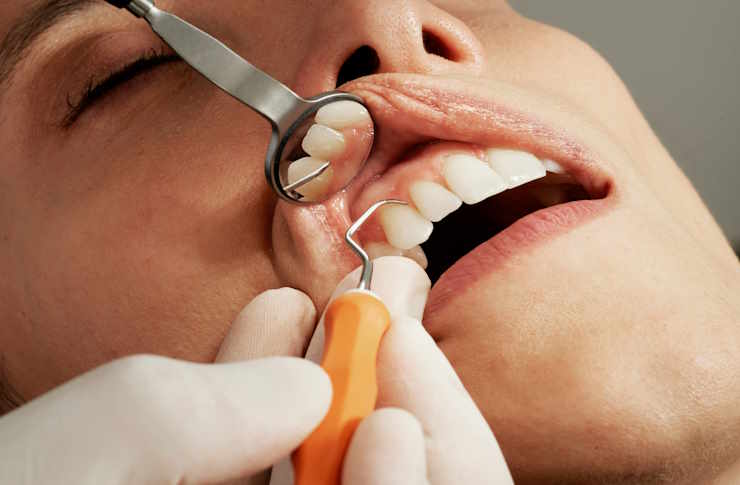Comprehensive Guide to Dental Care Options: From Emergency Services to Advanced Implant Treatments
Dental health is integral to overall well-being, yet many people delay seeking care until problems become severe. From routine check-ups to advanced restorative procedures, understanding available dental options can help you make informed decisions about your oral health. This guide explores various aspects of dental care, including finding services in your area, restoring damaged teeth, and exploring modern implant options that can significantly improve quality of life, particularly for older adults who may face unique dental challenges.

Finding Dental Services When You Need Them
When dental pain strikes or an emergency occurs, finding a dentist quickly becomes a priority. Many dental practices now offer extended hours, including evenings and weekends, to accommodate patients with urgent needs. To locate services in your area, online directories like the American Dental Association’s Find-a-Dentist tool can help identify nearby practices based on your zip code. Many dental offices also offer same-day emergency appointments for situations involving severe pain, trauma, or infections. When searching for immediate care, call ahead to confirm availability and whether the practice accepts your insurance plan. Some communities also have dedicated emergency dental clinics specifically designed to handle urgent cases outside regular business hours.
Options for Repairing Damaged Teeth
When teeth become damaged through decay, injury, or wear, several treatment options can restore both function and appearance. For minor cavities, tooth-colored composite fillings provide a natural-looking solution. More extensive damage might require inlays or onlays—custom-made restorations that fit precisely into prepared tooth surfaces. Severely damaged teeth often benefit from dental crowns, which completely cover the visible portion of the tooth. For teeth that cannot be saved, extraction followed by replacement options becomes necessary. Dental bonding offers another solution for chips, gaps, or discoloration, using tooth-colored resin to rebuild and reshape teeth. The appropriate repair method depends on factors including the extent of damage, location of the tooth, and your budget considerations.
Modern Advances in Dental Implant Technology
Traditional dental implants require multiple components: the titanium post that integrates with bone, an abutment that connects the post to the restoration, and screws to secure these components together. However, screwless dental implant systems represent a significant advancement in implant dentistry. These innovative designs eliminate the need for visible screws by using internal connection mechanisms or friction-fit components. The benefits include improved aesthetics (no visible screw access holes), reduced risk of component loosening, and simplified maintenance. Screwless systems also often feature better stress distribution throughout the implant structure, potentially extending the lifespan of the restoration. Popular screwless options include conical connection implants, morse taper connections, and one-piece implant designs that eliminate the need for separate abutments entirely.
Dental Implant Considerations for Older Adults
For seniors considering dental implants, several unique factors come into play. Age itself is not a barrier to implant treatment—successful outcomes have been documented in patients well into their 80s and 90s. However, considerations specific to older adults include bone density and volume, which typically decrease with age. Fortunately, procedures like bone grafting can address this challenge. Medical conditions common in seniors, such as diabetes or osteoporosis, require careful management but don’t necessarily preclude implant treatment. Many older adults benefit from implant-supported dentures, which offer significantly improved stability compared to conventional dentures. Financial considerations are also important, as Medicare generally doesn’t cover dental implants, though some Medicare Advantage plans might offer limited coverage. For seniors on fixed incomes, dental financing options or phased treatment plans can make implants more accessible.
Understanding the Cost of Dental Care and Implant Options
Dental treatment costs vary significantly based on location, provider expertise, and specific procedures. For basic dental care, average costs include routine examinations ($50-$200), professional cleanings ($75-$200), and fillings ($100-$300). More complex restorations like crowns typically range from $800 to $1,500 per tooth. Dental implant treatments represent a significant investment: a single tooth implant generally costs between $3,000 and $4,500, including the implant, abutment, and crown. Full-mouth reconstructions using implants can range from $25,000 to $50,000 or more.
| Dental Service | Average Cost Range | Notes |
|---|---|---|
| Single Tooth Implant | $3,000-$4,500 | Includes implant, abutment, crown |
| Screwless Implant System | $3,500-$5,000 | Premium option with aesthetic advantages |
| Implant-Supported Denture | $10,000-$30,000 per arch | Varies based on number of implants used |
| Bone Grafting | $300-$3,000 | Depends on grafting material and extent |
| CT Scan/3D Imaging | $250-$500 | Often required for implant planning |
Prices, rates, or cost estimates mentioned in this article are based on the latest available information but may change over time. Independent research is advised before making financial decisions.
Maintaining Dental Health Between Professional Visits
Professional dental care works best when complemented by consistent home care. Effective oral hygiene should include brushing twice daily with fluoride toothpaste, daily flossing, and using antimicrobial mouthwash as recommended. For those with dental implants, specialized cleaning tools like interdental brushes and water flossers can help maintain the areas around implants. Regular professional cleanings—typically recommended every six months—help remove plaque and tartar that home care might miss. Diet also plays a crucial role in dental health; limiting sugary foods and acidic beverages helps prevent decay and erosion. For seniors with dexterity challenges, adaptive tools like electric toothbrushes with larger handles or floss holders can make daily oral care more manageable and effective.
This article is for informational purposes only and should not be considered medical advice. Please consult a qualified healthcare professional for personalized guidance and treatment.




